
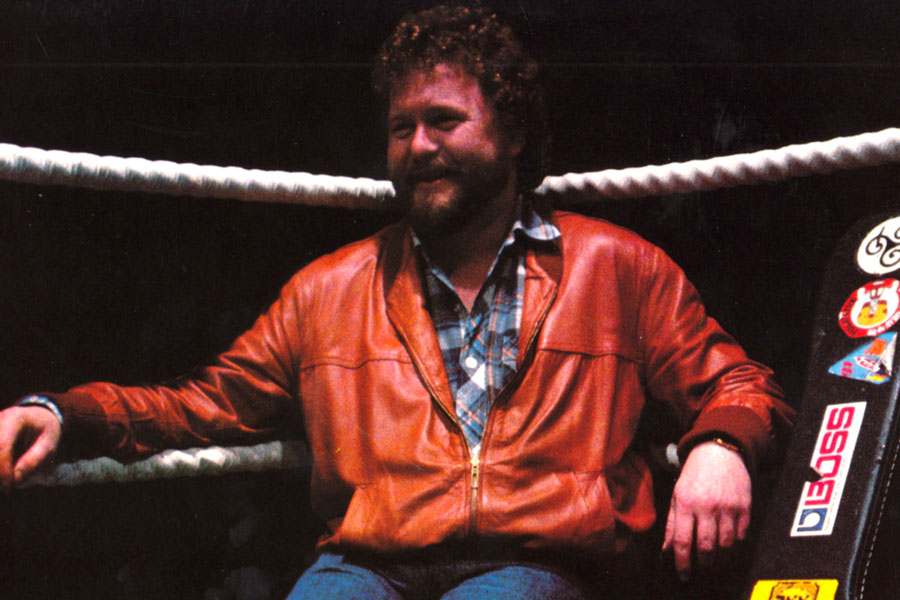
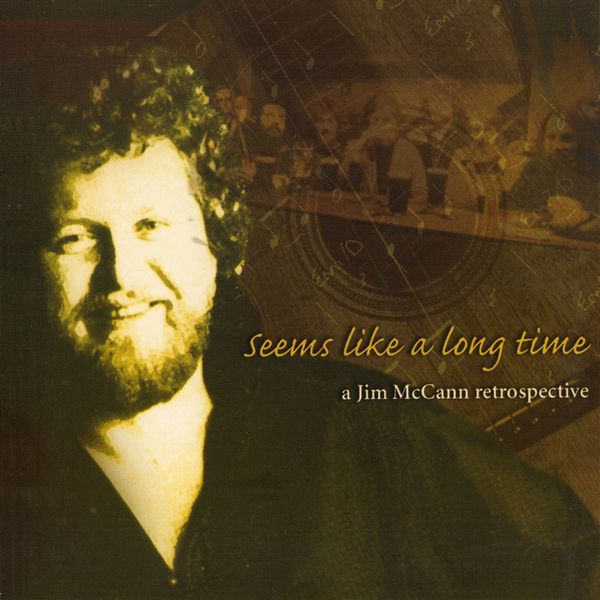 |
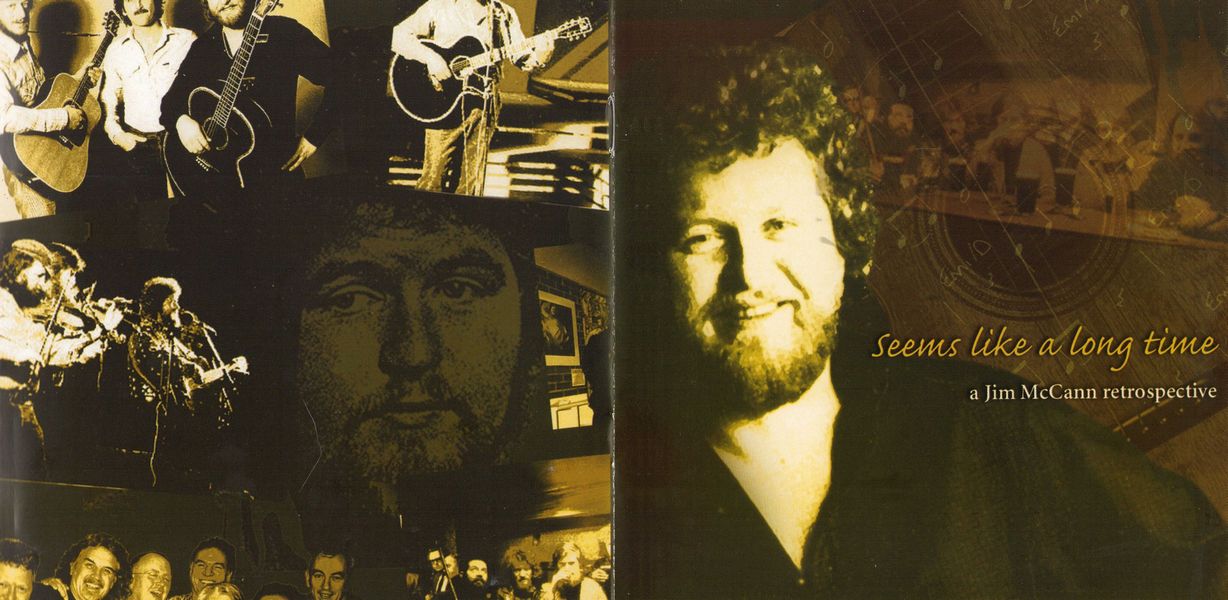
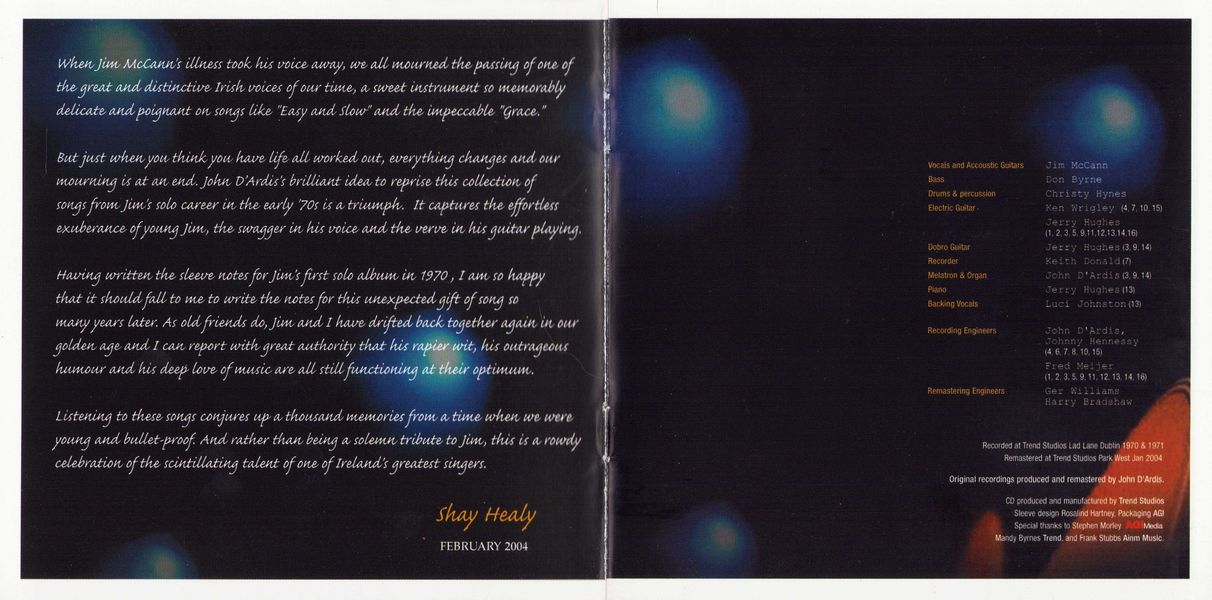 |
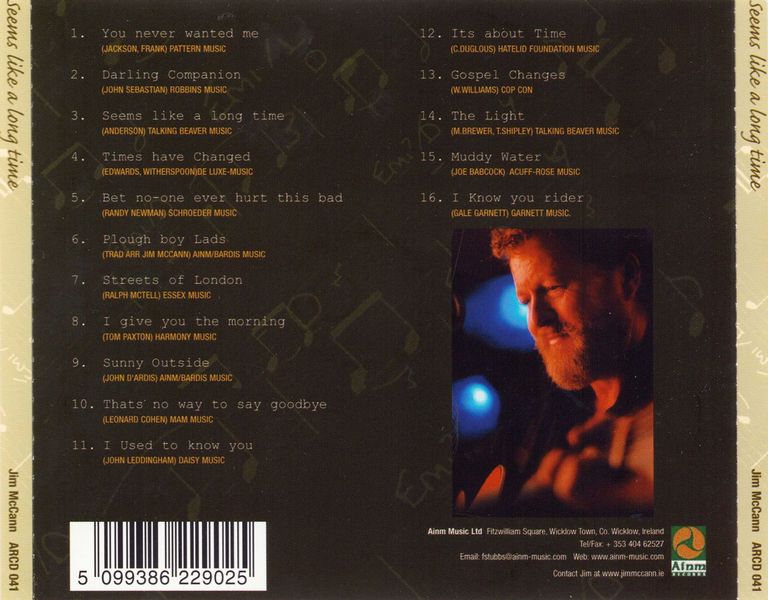
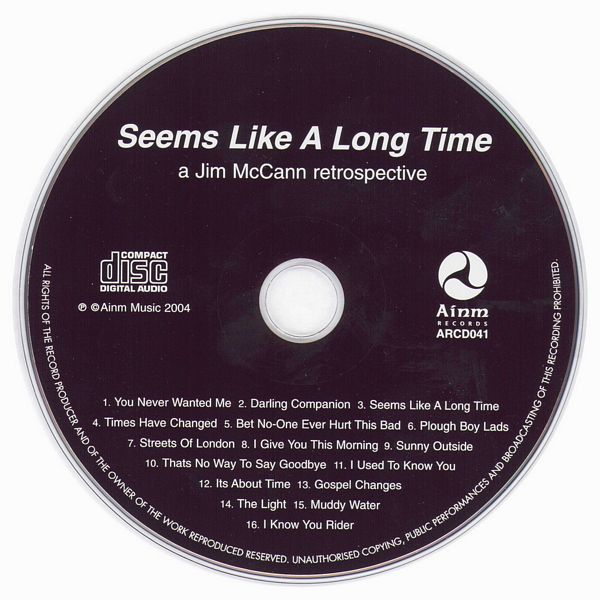
|
| more images |
Sleeve Notes
When Jim McCann's illness took his voice away, we all mourned the passing of one of the great and distinctive Irish voices of our time, a sweet instrument to memorably delicate and poignant on songs Like "Easy and Slow" and the impeccable "Grace."
But just when you think you have life all worked out, everything changes and our mourning is at an end. John D'Ardis's brilliant idea to reprise this collection of songs from Jim's solo career in the early '70s is a triumph. It captures the effortless exuberance of young Jim, the swagger in his voice and the verve in his guitar playing.
Having written the sleeve note for Jim's first solo album in 1970, I am so happy that it should fall to me to write the notes for this unexpected gift of song so many years later. As old friends do, Jim and I have drifted back together again in our golden age and I can report with great authority that his rapier wit, his outrageous humour and his deep love of music are all still functioning at their optimum.
Listening to these songs conjures up a thousand memories from a time when we were young and bullet-proof . And rather than being a solemn tribute to Jim, this is a rowdy celebration of the scintillating talent of one of Ireland's greatest singers.
Shay Healy
February 2004
When John D'Ardis contacted me with his plans for this project, my first reaction was one of total surprise. My second reaction — almost immediately — was a strong surge of my ever-present fear of impending embarrassment.
"Who the hell would want to listen to that stuff after all this time?" I said. "Just come in and have a listen", said John. "I think you'll be surprised."
Well, I did and I was. I wasn't surprised that John and I wallowed in a couple of hours of unashamed nostalgia for a more innocent and, in many ways, more enjoyable time but I was surprised by how fresh many of the tracks still sounded. Of course there were times during the playback when we gave each other an amused and rueful look on hearing something that would probably never have been let through these days, but the fact is that, overall, it's an accurate representation of what went on in Trend Studios all those years ago. We were all playing live, I was singing and playing my guitar at the same time, and if there were any prestudio rehearsals they were confined to some fairly laid-back discussions in the "Barge" pub, Charlemont Bridge and "Larry's" pub on Baggot Street. As it turned out, the musicians who helped out didn't actually need very much rehearsal anyway. The drummer and bass player, Chris Hynes and Don Byrne, played together several nights a week in a band and knew each other's playing intimately, and all the other friends who joined in were equally comfortable with our "in at the deep end" attitude to the sessions. I took care of the acoustic guitar myself; electric guitar on the first session was the late Ken Rigley, and on the second was the superb Gerry Hughes, who also played a dobro. Keith Donald played a recorder and John Sheahan contributed fiddle and whistle and had his name mis-spelled on the sleeve. (Many years later I was to share the stage with John Sheahan as a member of The Dubliners). Lucy Johnston, of the famous singing family, was drafted in to add her sweet voice to "Gospel Changes", and John D'Ardis took off his producers hat to play the Mellotron, a pre-synthesizer brute of an instrument, which required the player to anticipate the notes by playing them a second before they were heard! All in all it was a very happy gathering, and we enjoyed the hell out of it. For example, I remember that "I Know You, Rider" was added almost as an afterthought. This was something I often played to end my live set and was a big favourite with the Embankment and Old Shieling regulars. It featured some fairly frantic Richie Havens-style guitar playing and we were playing it just to have a "blow" at the end of the recording session, but because we were obviously enjoying ourselves it went on the album.
At that time in Ireland making a solo album was a very big deal in terms of raising one's profile. It had been a few years since I left the "Ludlows" folk group, with whom I'd made one album, and I'd spent some time living in London and travelling around the very busy English folk club circuit. There were some Other Irish singers and musicians whom I knew well knocking around the English circuit at the same time, notably Johnny Moynihan, Andy Irvine, Terry Woods and the peerless Christy Moore, and we had some great times together. Many of the friends I made during this time, such as Ralph McTell, remain close friends today, and indeed I first heard "Streets of London" sung by Ralph in "Cousins" club in Greek Street, London not long after he'd changed its name from "Streets of Paris". An inspired move, as it turned out. I fell in love with the song, and my recording of it on this album was made before Ralph's record company (without his knowledge or prior consent) added strings and voices to his version and made it a huge hit. The English folk club scene was vibrant and eclectic, and I had the opportunity to hear many different styles and influences on an almost nightly basis. This reflected on the choice of songs in my own performances, and I was open to any style of music that I found attractive. As a result, when I returned to Ireland my programme largely consisted of songs that were new to the audiences of the time, and they proved very popular.
This may explain the wide diversity of material on this album. Almost all the songs are those that I was performing live at the time in my solo act, and which both the audiences and myself enjoyed. Indeed, the freedom to record a whole album without the slightest worry about whether or not it was "commercially" suitable is a freedom that maybe I didn't appreciate fully at the time. John D'Ardis, while we were listening to these tracks, said to me "You certainly cast a wide net!" and it's true. The songs come from a very broad spectrum of styles — from Randy Newman to John Sebastian, from Hoyt Axton to Leonard Cohen, from Jerry Jeff Walker to traditional Irish. My only criterion was whether or not I liked the song.
This album contains what is hopefully a representative cross-section of those sessions at Hagan Court. It's a record that I'll treasure personally, for several reasons. One reason is that I never really expected to hear these tracks again; another, that for me it's an enduring momento of a time when everybody seemed to play and sing just for the pure enjoyment of making music. But the main reason is that the motives behind this project demonstrate such a degree of goodwill and generosity within the entertainment industry that I've been left with nothing to say that won't sound awkward. Nothing, that is, except "Thanks".
Truly, old friends are the best.
Jim McCann.
This Album is a miracle! It was recorded and replayed many times in the snug confines of The Barge, a pub that sits on the banks of the canal at Charlemont Bridge. I played session on it many times and wound up half-demented in Palmerston Road for my trouble. So when it became a psychical actuality, (I'm not dreaming, am I?) the initial shock was countered by the warm feeling that at last somebody cared about SuperMaCann.
Jim McCann's music is like himself, variable to say the least. On this album he covers everything from a classical ballad like 'Sullivan's John' right through to 'Love of the Common People.' He attacks his music with the same enthusiasm as his favourite wine might be attacked and he eats everything as the main course.
Sometimes he is SuperMaCann. When he wears his sheepskin coat he becomes Genghis McCann. And when he is telling his stories, he is Bubbles McCann. It is all a bit confusing really, but that's how Jim McCann really is.
Somehow he is sort of stereophonic in his approach to people and music. But talk about indolence! McCann is president and founder-member of the Society of Procrastinators for South County Dublin.
Jim McCann is slowly becoming a legend within "the business." What's more, we all know how good he is. But it's time you got a chance. Wherever he goes, the crack seems to revolve around Jim McCann's warm, earthy disrespect for pretension. So come on, burn your pin-stripe and learn to enjoy SupermaCann's freedom. It's in his music.
Shay Healy
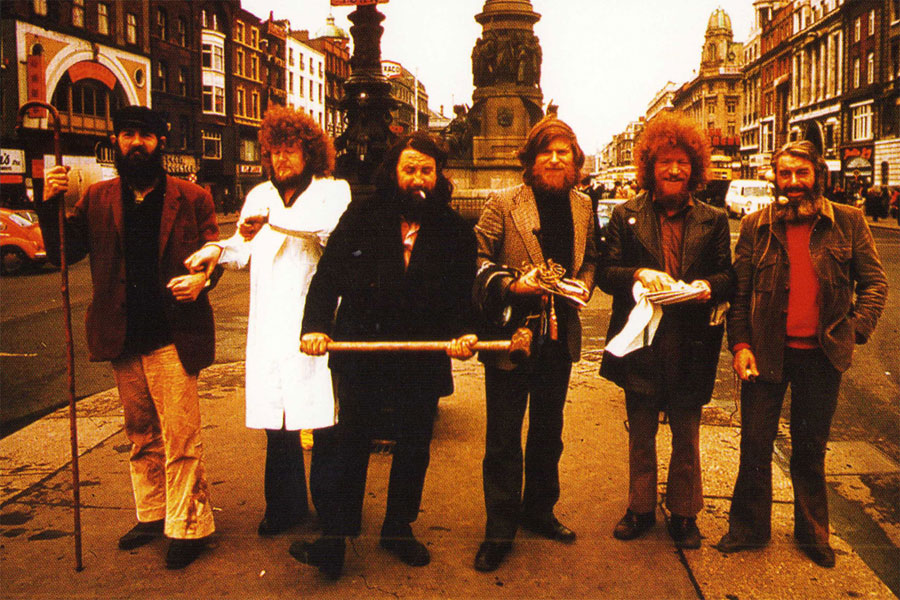 This was taken during a day-long visit to Dublin by a feature writer and photographer from the German magazine "Nieuw Revue" at the end of 1974. They asked the Dubliners to "act out" their previous occupations from before they went into the music business.
This was taken during a day-long visit to Dublin by a feature writer and photographer from the German magazine "Nieuw Revue" at the end of 1974. They asked the Dubliners to "act out" their previous occupations from before they went into the music business.
Thus, Jim McCann, as a former medical student, is taking Ciaran Bourke's pulse; Ciaran's prop, the shepherd's crook, had a dual purpose. It represented his involvement in agricultural studies, but also served as a walking aid as he had suffered a stroke that had partially disabled him. Barney McKenna is holding a sledge-hammer, representing manual labour, and John Sheahan holds a set of leads and a clip-board, as he had been a draughtsman in the E.S.B. Luke Kelly proudly celebrates the fact that his last "real" job was as a dish-washer, and Ronnie Drew wears a headset to show that he'd once been working as an operator in the telephone exchange.